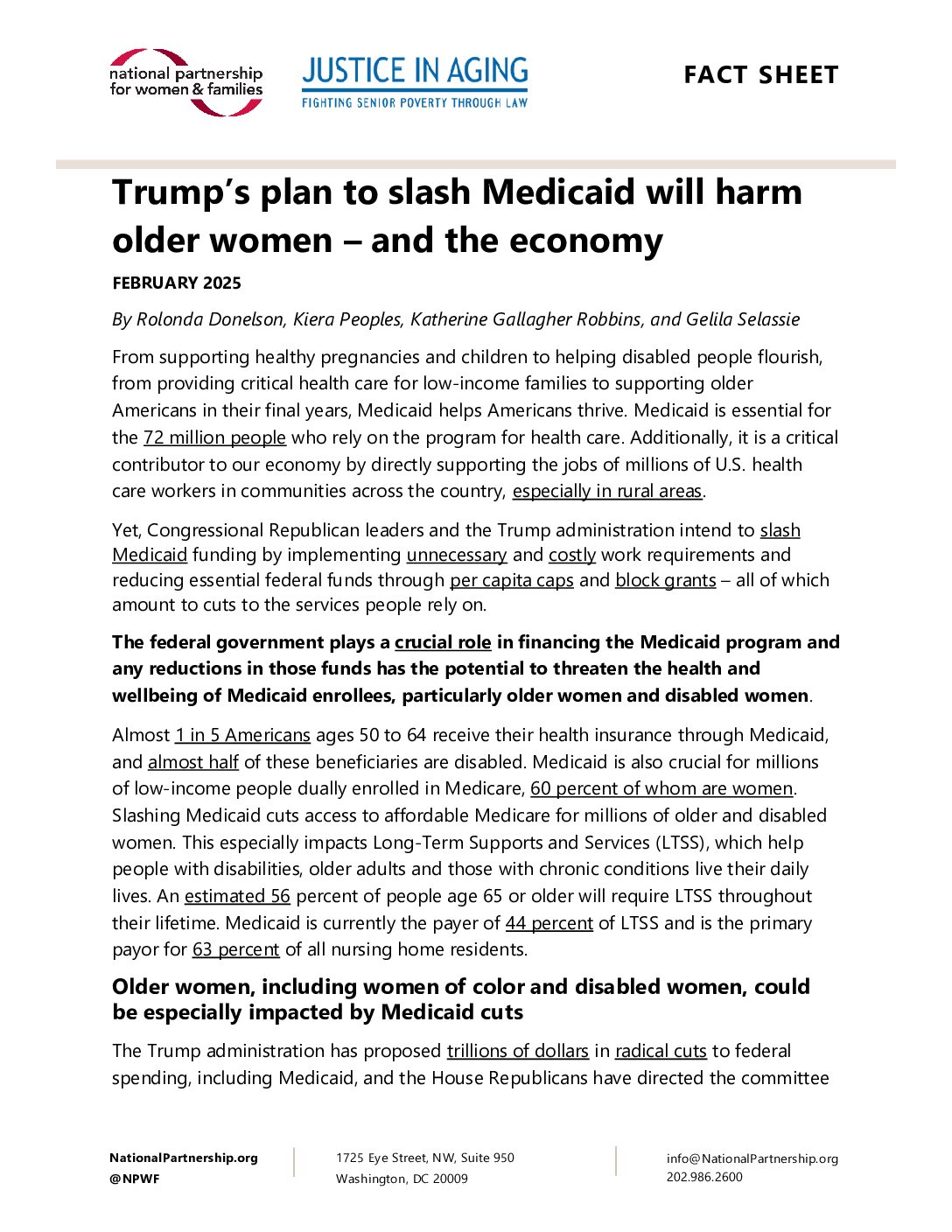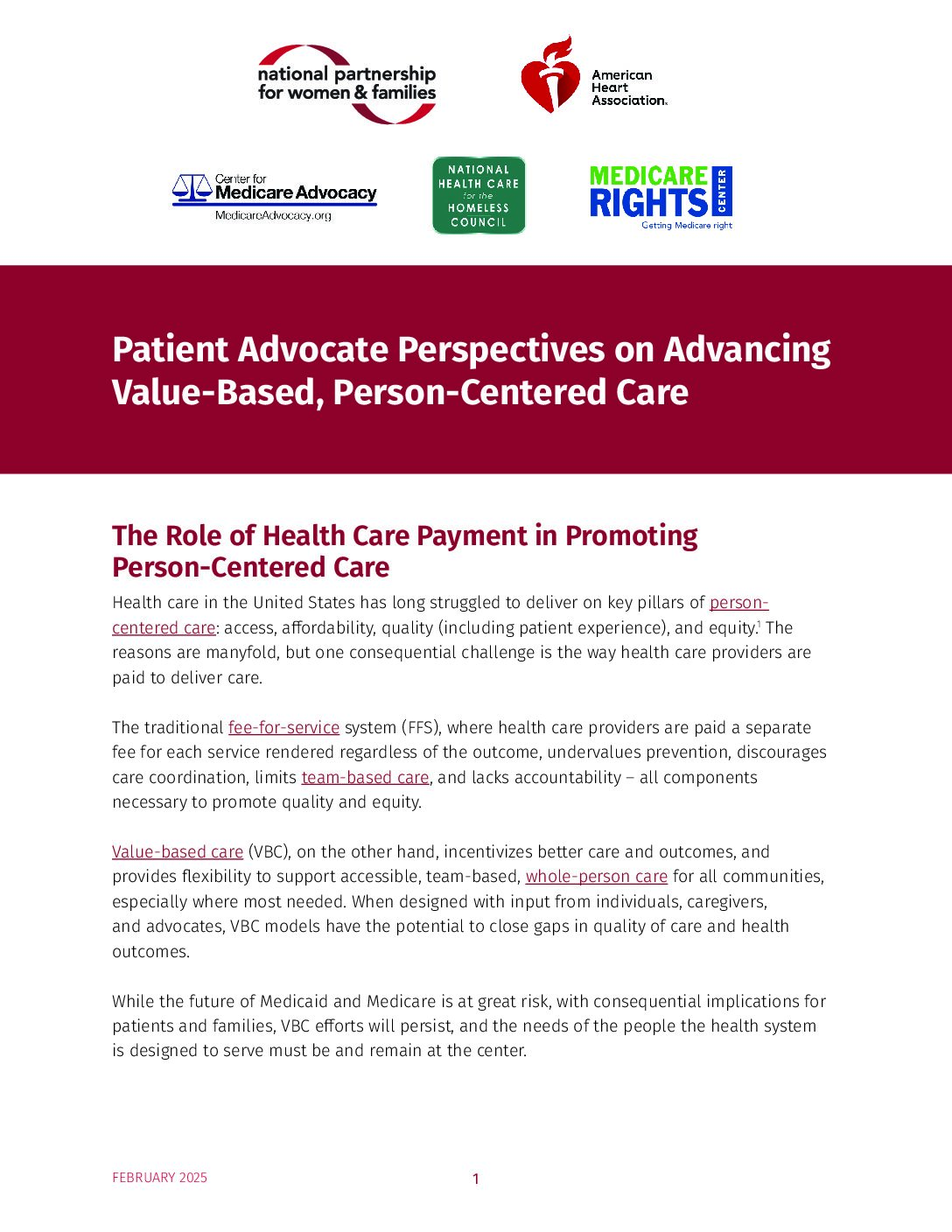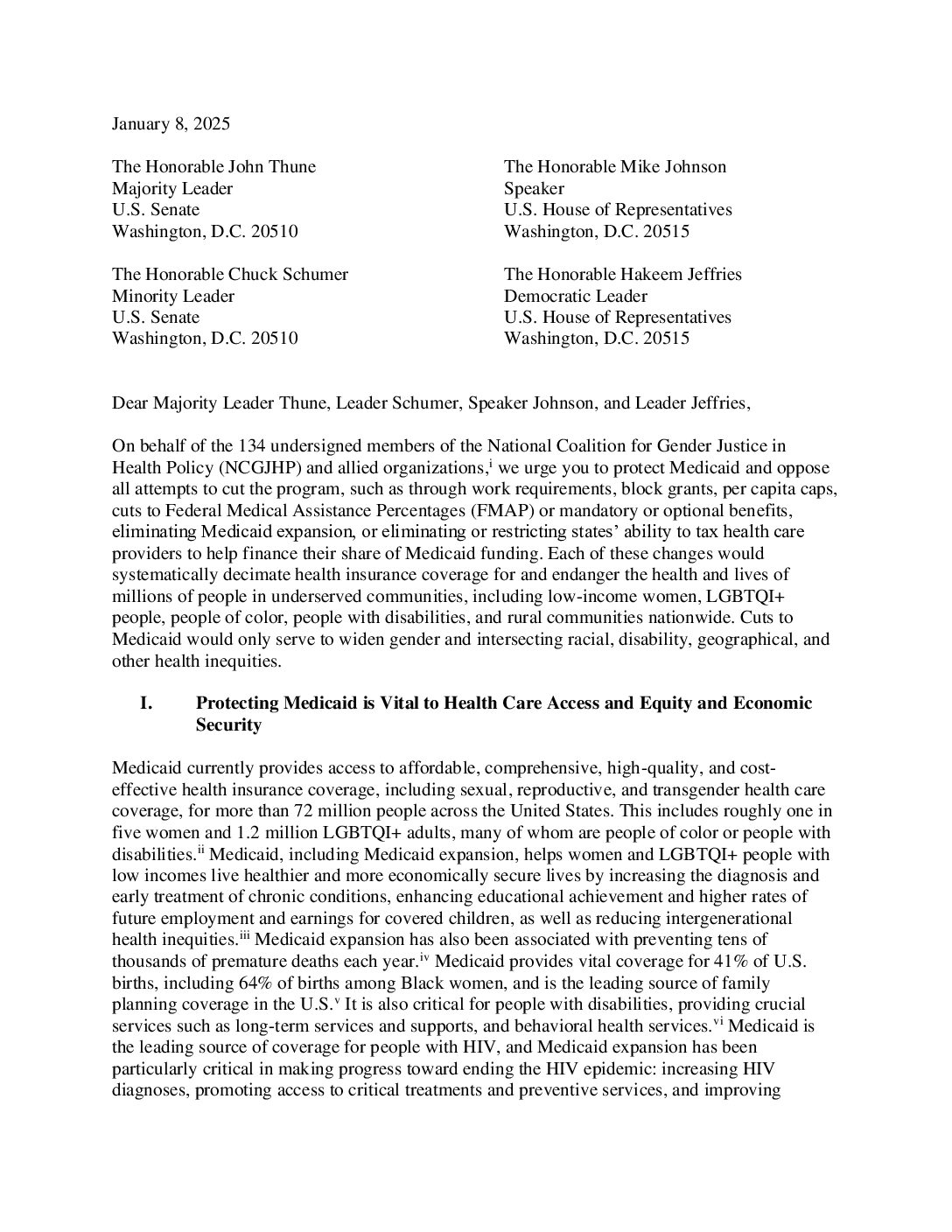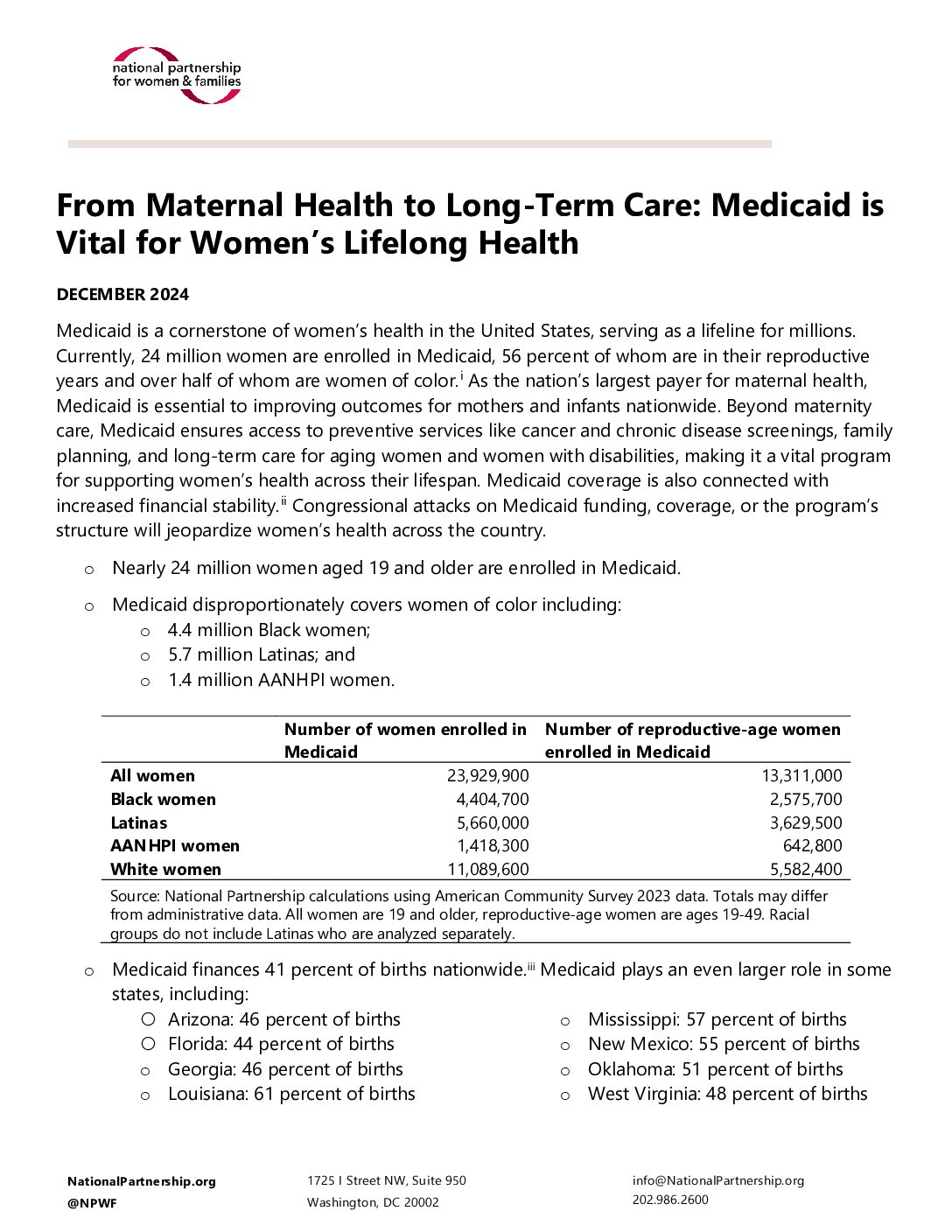FACT SHEET | Medicaid helps Americans thrive, yet Congressional Republican leadership and the Trump administration intend to slash this vital program. New National Partnership and Justice in Aging analyses show the potential impacts on older women.


FACT SHEET | Medicaid helps Americans thrive, yet Congressional Republican leadership and the Trump administration intend to slash this vital program. New National Partnership and Justice in Aging analyses show the potential impacts on older women.
ISSUE BRIEF | Efforts to overturn or undercut the enforcement of the PWFA puts 2.8 million pregnant workers at risk – including majorities of Black, brown and white women, and the majority in every state.

ISSUE BRIEF | This resource is a summary of the salient themes and recommendations that emerged from the Equity-Centered Payment Reform Learning Collaborative meeting series.

LETTER | The National Coalition for Gender Justice in Health Policy (NCGJHP) and 134 allied organizations sent a letter to Congress to urge them to protect Medicaid and oppose all attempts to cut the program.

FACT SHEET | Currently, 24 million women are enrolled in Medicaid: 56% are in their reproductive years and over half are women of color. Beyond maternity care, Medicaid ensures access to preventive services like cancer and chronic disease screenings, family planning,...
REPORT | We still find that states that have banned or are likely to ban abortion also overwhelmingly fail women on a range of key work and care policies. Yet, we also find that many states have taken key steps to advance women's health and economic freedom, and point...
REPORT | The new Innovation in Behavioral Health (IBH) model from the Center for Medicare and Medicaid Innovation (CMMI) offers significant potential to improve the way care is provided to people with BH conditions. The model tests a new payment-and-delivery approach...
ISSUE BRIEF | Black women are family caregivers – and they need flexibility and economic supports to make the best decisions for themselves and their families
ISSUE BRIEF | The new Transforming Maternal Health (TMaH) model is a crucial opportunity to improve outcomes for birthing people, especially those most affected by the maternal health crisis.
The mental health of Black moms is in crisis. This infographic illustrates why and what needs to happen.
In order to ensure pregnant people can exercise full autonomy over their bodies and lives on their own terms and without fear of criminalization, data privacy protections are urgently needed.
FACT SHEET | More than two years after the Supreme Court overturned Roe v. Wade and the constitutional right to an abortion, the Fiscal Year 2025 (FY25) appropriations bills put forward by House Republican leaders make clear their intent to continue the unrelenting...
In the November 2024 election, abortion access will be on the ballot in 10 states. Our analysis shows that more than 16.5 million women of reproductive age – 21.9 percent of all women of reproductive age in the U.S. – could be impacted by changes to...
FACT SHEET | The Office for Civil Rights at the Department of Health and Human Services finalized the HIPAA Privacy Rule to Support Reproductive Health Care Privacy on April 26, 2024, in response to the threats to abortion access, health care privacy, and...
FACT SHEET | The Supreme Court’s decision in Dobbs, and the state abortion bans that followed, have further curtailed people’s access to essential healthcare and fundamentally undermined people’s autonomy. As a result, pregnant people encounter many costs – including...
ISSUE BRIEF | Nearly two years later, the Supreme Court's decision to overturn Roe v. Wade continues to undermine disabled people's reproductive freedom and dignity, threaten their economic security, and endanger their health and lives.
ISSUE BRIEF | The Supreme Court’s decision in Dobbs v. Jackson Women’s Health Organization, and extreme abortion bans and restrictions passed by states even prior to then, have had far reaching impacts on health care providers and the communities they care for.
We call on Congressional champions for women's health and economic security to cosponsor and push for passage of the following priority bills in 2024.
FACT SHEET | South Carolinian women need livable wages, supportive workplace policies such as paid family and medical leave, comprehensive health care access, and access to abortion – and they need a democracy that allows for their voices to be heard
REPORT | Health care payment reform – and especially alternative payment models (APMs) that tie payment to performance – are widely believed to be an important lever for achieving crucial quality improvements.